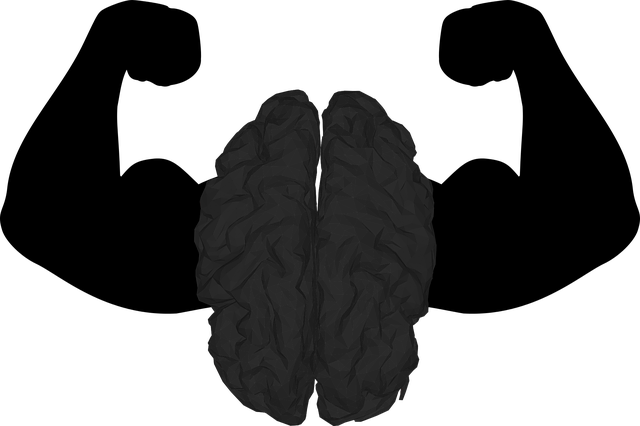Crisis Intervention Teams (CITs) are specialized groups that offer immediate, on-site support during mental health crises, particularly for those with limited access to traditional therapy. Trained in de-escalation and stability, CITs help individuals like new mothers suffering from postpartum depression develop emotional regulation skills and self-care routines. Their comprehensive training programs include evidence-based practices like cognitive behavioral therapy (CBT) and mindfulness meditation, fostering resilience and long-term mental health improvements. By focusing on therapy for adults with postpartum depression, these teams promote a culture of support, reduce stigma, and offer crucial care during a vulnerable period. Effective CIT training requires structured evaluation and continuous improvement strategies to ensure impactful support within communities.
Crisis intervention team (CIT) training programs play a pivotal role in equipping professionals to manage mental health crises effectively. This article delves into the crucial aspects of CITs, highlighting their significant impact on community well-being, especially when addressing pressing issues like adult postpartum depression. We explore the essential elements of comprehensive CIT training, including specialized strategies for this vulnerable population. By understanding the value of such programs, we can foster better support systems and improve outcomes for those facing mental health challenges, particularly in the context of therapy for adults postpartum depression.
- Understanding Crisis Intervention Teams: Their Role and Impact
- The Importance of Training for Effective Response
- Key Components of a Comprehensive Crisis Team Program
- Targeting Specific Populations: Adult Postpartum Depression
- Implementation, Evaluation, and Continuous Improvement Strategies
Understanding Crisis Intervention Teams: Their Role and Impact

Crisis Intervention Teams (CITs) are specialized groups designed to provide immediate and effective support during times of intense crisis. These teams play a pivotal role in helping individuals navigate mental health challenges, particularly in situations where traditional therapy settings might not be readily accessible or suitable. CITs offer on-site interventions, focusing on de-escalation and stability, which can significantly impact an individual’s well-being. By integrating these teams into communities, especially targeting at-risk populations like those suffering from postpartum depression, we can foster a culture of support and reduce the stigma associated with mental illness.
The role of CITs extends beyond immediate crisis management; they empower individuals to develop essential skills for emotional regulation and self-care routine establishment, which are crucial aspects of maintaining better mental health. Through comprehensive training programs, these teams equip participants with strategies to handle future crises, promoting long-term resilience and overall well-being. Such initiatives contribute to broader mental illness stigma reduction efforts, ensuring that support is readily available and accessible to those in need.
The Importance of Training for Effective Response

Effective crisis intervention team training is paramount to ensuring a swift and compassionate response to individuals in distress. In today’s world, where mental health challenges are prevalent, well-trained teams can make a significant difference in people’s lives. These programs equip participants with essential skills to recognize signs of distress, especially in at-risk populations like adults experiencing postpartum depression.
Training goes beyond textbook knowledge; it provides practical guidance on implementing self-care routines for better mental health and confidence-boosting strategies. Through role-playing scenarios, teams learn effective communication techniques and emotional support methods. Additionally, incorporating mental wellness journaling exercises during training can offer a safe space for individuals to process their experiences and emotions, fostering resilience and personal growth.
Key Components of a Comprehensive Crisis Team Program

A comprehensive crisis intervention team program is multifaceted and designed to equip professionals with the skills to address a range of mental health crises effectively. Key components include extensive training in evidence-based practices, such as cognitive behavioral therapy (CBT) and mindfulness meditation, empowering team members to provide tailored support for individuals experiencing distress.
Additionally, fostering inner strength development among team members is vital. This involves teaching resilience, stress management techniques, and emotional regulation skills not only to enhance their own well-being but also to effectively assist others in building coping mechanisms. Cultural sensitivity in mental healthcare practice is another critical element, ensuring that the team is equipped to navigate diverse cultural backgrounds and provide respectful, inclusive support tailored to individual needs.
Targeting Specific Populations: Adult Postpartum Depression

Many crisis intervention team training programs tailor their approaches to target specific populations with unique needs. One such area of focus is adult postpartum depression (PPD), a common yet often undiagnosed condition affecting new mothers. PPD can significantly impact a woman’s ability to care for herself and her baby, making specialized support crucial. These tailored programs aim to equip crisis intervention teams with the skills to recognize the signs of PPD, which may include severe sadness, anxiety, fatigue, and feelings of inadequacy.
Through comprehensive training, team members learn effective strategies such as self-awareness exercises and confidence-boosting techniques to empower women struggling with PPD. Additionally, they are taught how to facilitate discussions around self-care routine development for better mental health, enabling these crisis responders to offer valuable support during this vulnerable period in a mother’s life.
Implementation, Evaluation, and Continuous Improvement Strategies

The successful implementation of crisis intervention team training programs requires a structured approach that includes clear evaluation metrics and strategies for continuous improvement. Once the program is launched, it’s crucial to assess its effectiveness through various methods such as participant feedback surveys, post-training assessments, and real-world application evaluations. These steps help in identifying areas of success and aspects needing enhancement, ensuring the program aligns with the evolving needs of individuals struggling with mental health issues, specifically postpartum depression among adults.
Continuous improvement involves regular review of training materials, updates based on new research findings in therapy for adults with postpartum depression, and incorporating best practices from similar programs. Organizations can foster this through ongoing professional development opportunities like stress management workshops and depression prevention initiatives. By integrating feedback and staying abreast of the latest developments in mental wellness coaching programs, crisis intervention teams can provide more impactful support, ultimately contributing to improved outcomes and enhanced mental health within their communities.
Crisis intervention team training is a vital step towards fostering supportive communities that effectively address mental health crises. By equipping individuals with the necessary skills, we can enhance the quality of care, especially for vulnerable populations like adults experiencing postpartum depression. Comprehensive programs that target specific needs, as demonstrated in this article, have the potential to revolutionize support systems and lead to better outcomes. Implementing these strategies and continuously evaluating their impact is crucial to ensuring that crisis intervention teams are well-prepared to provide timely and effective therapy for adults postpartum depression and similar mental health challenges.








